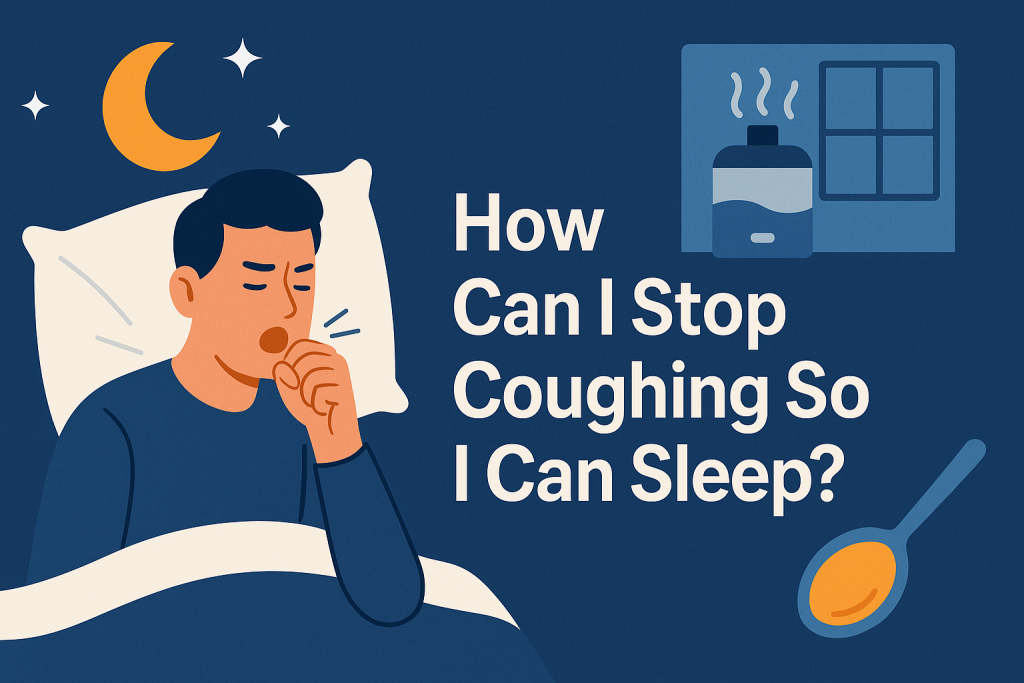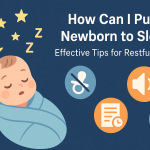Nothing is more frustrating than lying in bed, ready for a good night’s rest, only to be kept awake by an incessant cough. Whether due to a cold, allergies, or other causes, nighttime coughing can disrupt your sleep and leave you feeling exhausted. If you’re searching for ways to stop coughing so you can sleep peacefully, you’re not alone. In this article, we’ll uncover practical tips, home remedies, and when to seek medical help for persistent coughing at night.
Understanding Nighttime Cough: Why Does It Get Worse?
The nature of a cough often changes at night. Several factors contribute to increased coughing when you lie down:
- Gravity: Lying flat can cause mucus to pool in the throat, triggering the cough reflex.
- Dry air: Bedrooms often have drier air, especially with heating or air conditioning, irritating the throat and airways.
- Postnasal drip: Congestion causes mucus to drip down your throat, aggravating cough.
- Underlying conditions: Asthma, acid reflux, or allergies can worsen at night, heightening coughing episodes.
Understanding the reasons behind your nighttime cough is the first step to finding relief.
Effective Home Remedies to Stop Coughing at Night
There are several simple but effective home remedies and lifestyle changes you can try to calm your cough and help you sleep:
1. Elevate Your Head
Sleeping with your head elevated can help prevent mucus from pooling in the back of your throat. Use extra pillows or a wedge pillow to prop yourself up. This technique can also reduce symptoms of acid reflux that often cause nighttime coughing.
2. Stay Hydrated
Drinking plenty of fluids during the day and before bed helps thin out mucus, making it less likely to trigger a cough. Warm beverages like herbal tea with honey can soothe the throat and offer additional relief.
3. Use a Humidifier
If your bedroom air is dry, especially in winter or with air conditioning, use a humidifier to add moisture. This can ease irritation in your throat and airways, reducing the urge to cough.
4. Try Honey
Honey is a time-tested remedy for cough. A spoonful before bed can coat the throat and calm irritation. You can also add honey to warm tea for added soothing benefits. Avoid giving honey to children under one year of age.
5. Gargle with Salt Water
Before bedtime, gargle with warm salt water. This can reduce inflammation and clear mucus from the throat, making coughing less likely.
6. Keep Allergens at Bay
Nighttime coughing may be triggered by allergens in your bedroom, such as dust mites, pet dander, or pollen. Wash bed linens regularly, use hypoallergenic bedding, and keep pets out of the bedroom to minimize exposure.
7. Soothe with Lozenges or Cough Drops
Cough drops or lozenges help by coating and soothing the throat. Choose sugar-free varieties if you are concerned about oral health.
8. Avoid Triggers Before Bed
Identify and avoid common triggers that can worsen your cough at bedtime, such as smoking, alcohol, or consuming spicy foods that can aggravate acid reflux.
Over-the-Counter Medications for Nighttime Cough
If home remedies are not enough, over-the-counter (OTC) medications can provide temporary relief:
- Cough suppressants (antitussives): Medications like dextromethorphan (found in Robitussin DM, Delsym) help reduce the urge to cough.
- Expectorants: Guaifenesin (Mucinex) thins mucus, making it easier to clear from your airways.
- Decongestants: If your cough is due to congestion, a decongestant might help, but consult your doctor if you have high blood pressure or other conditions.
- Antihistamines: For allergy-related cough, antihistamines like cetirizine or loratadine can reduce postnasal drip and throat irritation.
Always follow the dosage instructions and consult a healthcare professional before starting any new medication, especially for children or if you are pregnant.
When to See a Doctor About Nighttime Cough
While most nighttime coughs are harmless and resolve within a few weeks, some signs warrant medical attention:
- Cough lasting more than three weeks
- Severe or worsening cough
- Shortness of breath or wheezing
- High fever, chest pain, or coughing up blood
- Unexplained weight loss or fatigue
These symptoms could indicate a more serious underlying issue such as asthma, pneumonia, heart failure, or chronic obstructive pulmonary disease (COPD).
Special Considerations: Cough in Children
Nighttime coughing is common in children and is often caused by viral infections or allergies. Parents should be cautious with remedies:
- Never give children under 4 years old any OTC cough or cold medicines unless prescribed by a doctor.
- Keep their heads elevated and offer sips of water or warm, clear fluids.
- Avoid honey in children under 1 year of age due to the risk of botulism.
Always consult a pediatrician if your child’s cough is severe, associated with breathing difficulty, or accompanied by a high fever.
Prevention: Long-Term Strategies for Cough-Free Sleep
Preventing future episodes of nighttime coughing involves these healthy habits:
- Maintain good indoor air quality by cleaning regularly and using air filters.
- Manage allergies and asthma with prescribed medications and lifestyle adjustments.
- Practice good hand hygiene to prevent respiratory infections.
- Avoid smoking and second-hand smoke exposure.
- Address chronic conditions like GERD (acid reflux) with dietary and medical management.
With these steps, you can reduce the likelihood of persistent cough and enjoy more restful nights.
Frequently Asked Questions
Why does my cough get worse at night?
Gravity and postnasal drip can increase irritation when you lie down. Dry bedroom air and underlying conditions like reflux or allergies may also worsen coughing at night.
What is the best sleeping position to stop coughing?
Sleeping on your back with your head elevated or on your side can help reduce coughing. Avoid sleeping completely flat if you are prone to cough.
Can I take cough medicine before bed?
Yes, many find relief from nighttime cough with OTC suppressants or antihistamines. However, always follow dosage guidelines and consult a doctor if you have underlying health conditions.
Should I be worried about a night cough?
Most are harmless, but see a doctor if your cough is persistent, severe, or associated with other symptoms like chest pain or shortness of breath.
Conclusion: Sleep Soundly, Cough Less
A nighttime cough can disrupt your rest and leave you feeling drained. But with the right remedies, smart lifestyle changes, and attention to underlying causes, you can minimize coughing and enjoy peaceful sleep. If your cough lingers or worsens, consult a healthcare provider for a thorough evaluation and tailored treatment.


